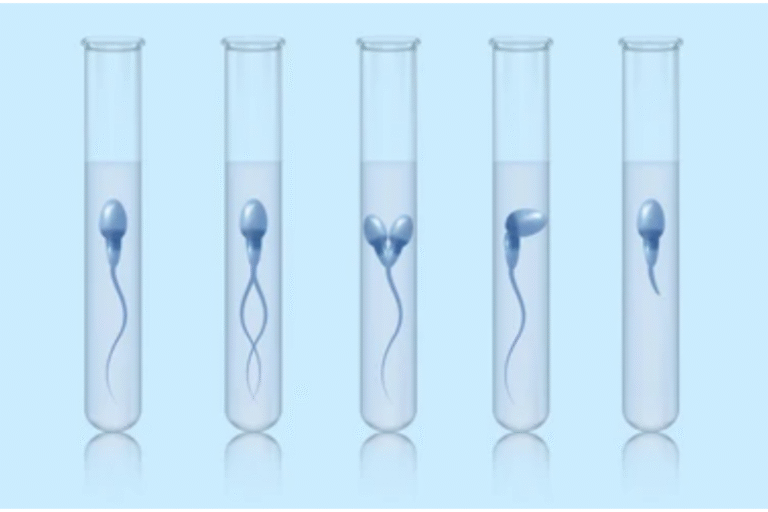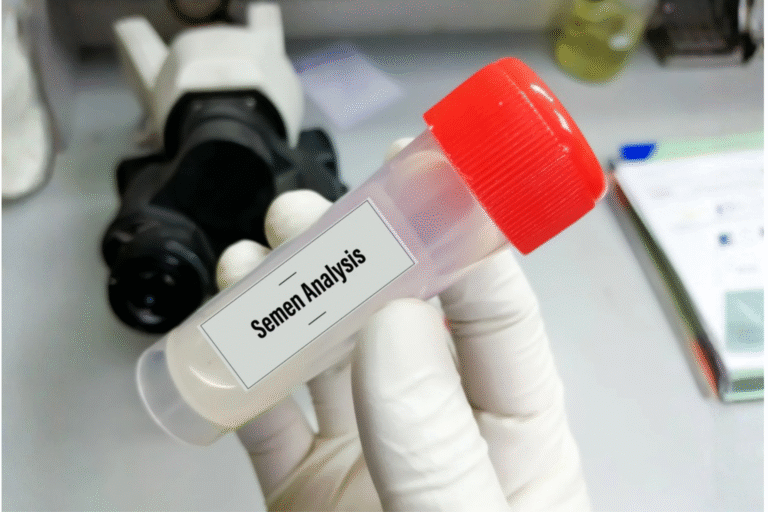After weeks of injections, appointments, egg retrieval, and anticipation, you’re suddenly left with one question: Did it work?
The embryo transfer is done. You’ve seen your beautiful embryo on the ultrasound screen. Your doctor said everything looked perfect. And now… you wait.
Welcome to the two-week wait—arguably the most emotionally intense period of the entire IVF journey. If you’re feeling like you might lose your mind, you’re not alone.
What's Happening During the Two-Week Wait ?
Let’s ground ourselves in biology:
Days 1-2: Your embryo floats in your uterus, preparing to attach.
Days 3-5: Implantation begins. The embryo burrows into your endometrium.
Days 6-9: If implantation succeeds, the embryo produces hCG—the pregnancy hormone tests detect.
Days 10-14: hCG levels rise, doubling roughly every 48 hours in healthy early pregnancy.
Your blood test is scheduled 12-14 days after transfer, depending on whether you had a day 3 or day 5 transfer. This timing allows hCG to rise high enough for reliable detection.

The Symptom Obsession (And Why It Doesn't Mean What You Think)
Let’s address the elephant in the room: every tiny sensation feels like it means something.
A cramp? Maybe implantation! Sore breasts? Definitely pregnant! Tired? Pregnancy fatigue! No symptoms? Oh no, it failed!
Here’s the truth: symptoms during the two-week wait mean absolutely nothing.
The lesser-known reality: All the “classic early pregnancy symptoms”—cramping, breast tenderness, bloating, fatigue, spotting—can be caused by the progesterone and medications you’re taking. Your body is flooded with hormones regardless of whether you’re pregnant.
Conversely, absence of symptoms doesn’t mean failure. Some pregnancies produce zero early signs. The only reliable indicator is your beta hCG blood test, not how you feel.
The Do's And Don'ts
x Don’t test early. Home tests can give false negatives (too early for hCG) or false positives (trigger shot hCG lingers 7-14 days). Early testing creates anxiety, not clarity.
x Don’t Google symptoms. You’re looking for reassurance, but Googling “cramping 6 days post transfer” leads to anxiety-ridden rabbit holes. Dr. Google is not your friend right now.
x Don’t analyze every sensation. Your body is on hormones. Most sensations are medication-related, not pregnancy-related.
x Don’t isolate completely. Complete isolation can worsen anxiety. Stay connected to your support system.
✔ Stay gently busy. Plan activities that occupy your mind—coffee with friends, light exercise, creative hobbies, small projects. Distraction, not exhaustion.
✔ Set boundaries. If questions make you uncomfortable, say “I’ll update you when I’m ready.” You don’t owe anyone information right now.
✔ Practice mindfulness. Deep breathing, meditation, or sitting quietly acknowledging thoughts without judgment helps. The goal isn’t stopping anxious thoughts—it’s observing them without spiraling.
✔ Move your body gently. Light exercise—walking, gentle yoga, swimming—is fine and helps anxiety. Avoid high-intensity workouts, but don’t treat yourself like glass.
✔ Make “flakeable” plans. Loose plans you can cancel if needed. Having options feels better than staring at empty days.
✔ Continue medications exactly as prescribed. Don’t stop progesterone unless your doctor explicitly tells you to, even if you get your period or think the cycle failed.

What About Bed Rest?
You might have heard that you should rest completely after transfer. Here’s the truth: there’s no evidence that bed rest improves pregnancy rates. In fact, normal activity is fine and might even be better for your mental health.
Treat yourself gently. Avoid heavy lifting and strenuous exercise. Take time off work if your job is physical or extremely stressful. But you don’t need to lie in bed for two weeks. Go about your normal daily activities—your embryo isn’t going to “fall out.”
When to Call Your Doctor
Most symptoms during the two-week wait are normal. However, call your clinic if you experience:
- Severe abdominal pain or swelling
- Heavy bleeding (more than a period)
- Fever or signs of infection
- Difficulty breathing
- Severe nausea or vomiting
- Any symptom that feels concerning to you
Trust your instincts. Your clinic is there to support you, and it’s always better to call with concerns.

After the Test: Whatever the Result
One test result is not the end of your story.
If it’s positive, you’ll feel relief, joy, and immediate new anxiety. That’s okay. Take it one step at a time.
If it’s negative, you’ll grieve. This loss is real, even if others don’t understand. Give yourself permission to feel devastated, angry, or however you need to feel. When you’re ready, your medical team will help figure out the next step.
If you’re in your two-week wait right now, our entire team is here for you. Call us with questions, concerns, or just for reassurance. We’ve been through this with thousands of patients and understand exactly how you’re feeling.
Reach out anytime—via phone, email, or patient portal. You don’t have to white-knuckle through this alone.
Because the two-week wait is hard enough. You deserve support every step of the way.









